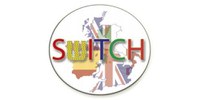SWITCH Erasmus Project
SWITCH is Erasmus KA2 VET project that it will run form September 2015 until September 2018. The project involves 3 VET schools:

- Halesowen college, UK.
- ITE Tambosi-Battisti, Trento, Italy
- Institut Puig Castellar,Santa Coloma de Gramenet, Barcelona, Spain.
Halesowen is the promoter of the project and at the same time is the coordinator.
The project is intended to enable the staff involved to teach basic skills or key
competencies in new, engaging and inspiring ways. This will result in many more
students gaining basic skills qualifications that they need in order to progress into higher
level vocational education and training (VET) programmes or employment.
Eight key competences
This framework defines eight key competences and describes the essential knowledge, skills and attitudes related to each of these. These key competences are:
- communication in the mother tongue, which is the ability to express and interpret concepts, thoughts, feelings, facts and opinions in both oral and written form (listening, speaking, reading and writing) and to interact linguistically in an appropriate and creative way in a full range of societal and cultural contexts;
- communication in foreign languages, which involves, in addition to the main skill dimensions of communication in the mother tongue, mediation and intercultural understanding. The level of proficiency depends on several factors and the capacity for listening, speaking, reading and writing;
- mathematical competence and basic competences in science and technology. Mathematical competence is the ability to develop and apply mathematical thinking in order to solve a range of problems in everyday situations, with the emphasis being placed on process, activity and knowledge. Basic competences in science and technology refer to the mastery, use and application of knowledge and methodologies that explain the natural world. These involve an understanding of the changes caused by human activity and the responsibility of each individual as a citizen;
- digital competence involves the confident and critical use of information society technology (IST) and thus basic skills in information and communication technology (ICT);
- learning to learn is related to learning, the ability to pursue and organise one's own learning, either individually or in groups, in accordance with one's own needs, and awareness of methods and opportunities;
- social and civic competences. Social competence refers to personal, interpersonal and intercultural competence and all forms of behaviour that equip individuals to participate in an effective and constructive way in social and working life. It is linked to personal and social well-being. An understanding of codes of conduct and customs in the different environments in which individuals operate is essential. Civic competence, and particularly knowledge of social and political concepts and structures (democracy, justice, equality, citizenship and civil rights), equips individuals to engage in active and democratic participation;
- sense of initiative and entrepreneurship is the ability to turn ideas into action. It involves creativity, innovation and risk-taking, as well as the ability to plan and manage projects in order to achieve objectives. The individual is aware of the context of his/her work and is able to seize opportunities that arise. It is the foundation for acquiring more specific skills and knowledge needed by those establishing or contributing to social or commercial activity. This should include awareness of ethical values and promote good governance;
- cultural awareness and expression, which involves appreciation of the importance of the creative expression of ideas, experiences and emotions in a range of media (music, performing arts, literature and the visual arts).
These key competences are all interdependent, and the emphasis in each case is on critical thinking, creativity, initiative, problem solving, risk assessment, decision taking and constructive management of feelings.
Switch Learning Blog
With this learner blog we will give the students opportunity to take part in challenges and write about what they found out.
https://switchhalesowen.wordpress.com/
Activities in which Puig Castellar has participated
School year 2015-2016
- Teacher training in Halesowen 2015
- Teacher visit in Institut Puig Castellar 2016
- Outputs 2015-2016
School year 2016-2017
- Multiplier Events 2016
- Teacher training in Halesowen 2016
- Transnational meeting
- Outputs 2016-2017
- Teacher visit in Institut Puig Castellar 2017
School year 2017-2018
- Multiplier event 2017
- Teacher training in Halesowen 2017
- Teacher visit in Institut Puig Castellar 2018
- Outputs 2017-2018
